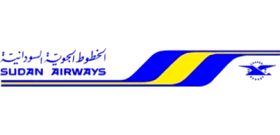 Sudan Airways Returns: New Routes Emerge from the Ashes
Sudan Airways Returns: New Routes Emerge from the Ashes
Sudan Airways has resumed flight operations after a three-month hiatus, marking a significant development for regional air travel. Operating from Port Sudan International Airport, currently the only functional hub in the country due to the ongoing conflict, the airline now connects to Cairo, Riyadh, and Jeddah. This resumption of service, using a recently restored Airbus A320-200, offers a vital lifeline for travel to and from Sudan, presenting new opportunities for African travel agents.
Established in 1946, Sudan Airways holds a rich history in African aviation. From its humble beginnings with four de Havilland Doves, the airline expanded rapidly, connecting Sudan with key destinations across Africa and the Middle East. The introduction of jet aircraft in the 1960s further broadened its reach, extending services to Europe and solidifying its presence on the international stage. However, subsequent decades brought challenges, including political instability, economic sanctions, and safety concerns, leading to a decline in operations and a shrinking fleet.
The ongoing civil conflict in Sudan has further compounded these challenges, severely impacting the country’s aviation infrastructure. Khartoum International Airport, once the nation’s primary airport, remains largely non-operational due to damage sustained during the conflict. This has elevated Port Sudan International Airport to the crucial role of Sudan’s main aviation hub, facilitating essential travel and trade connections.
The airline’s current network, focused on Cairo, Riyadh, and Jeddah, reflects both the limitations imposed by the conflict and the strategic importance of these key regional markets. Cairo serves as a major transit point for travelers, while Riyadh and Jeddah provide vital links to Saudi Arabia, a significant economic partner for Sudan. These routes are not only essential for passenger travel but also for facilitating trade and maintaining vital economic lifelines.
Despite operating with a single aircraft, Sudan Airways has the potential to significantly impact regional connectivity. The Airbus A320-200, with a typical capacity of 180 passengers, can facilitate up to 30,000 passengers monthly across its current network. This capacity, while limited, represents a vital contribution to regional travel, particularly given the restricted air access to and from Sudan. For African travel agents, this presents an opportunity to cater to the demand for travel to and from Sudan, offering specialized itineraries and travel packages.
The resumption of Sudan Airways’ flights is a positive sign for the Sudanese aviation sector and the broader African travel market. It signals a step towards normalcy amidst challenging circumstances and underscores the resilience of the industry. While the airline faces ongoing challenges, including a reduced fleet and limited network, its return to service offers a glimmer of hope for the future of air travel in Sudan.
This development also presents opportunities for collaboration and partnership within the African travel industry. Travel agents can leverage the restored connectivity to develop tailored travel packages that cater to the specific needs of travelers to and from Sudan. This could include connecting flights through regional hubs, ground transportation arrangements, and curated travel experiences that showcase Sudan’s unique cultural and historical attractions. By working together, airlines, travel agents, and other tourism stakeholders can contribute to the revitalization of Sudan’s travel sector and support the country’s journey towards recovery.
The resumption of Sudan Airways’ flights is not just about restoring air travel; it is about rebuilding connections, fostering economic activity, and supporting the Sudanese people during a difficult period. For African travel professionals, this presents both a challenge and an opportunity. By understanding the current landscape and working collaboratively, they can play a vital role in facilitating travel to and from Sudan, contributing to the recovery of the country’s tourism sector and the broader African travel market.
The airline’s current operational status, while limited, offers a valuable opportunity for African travel agents to demonstrate their expertise and adaptability. By staying informed about the evolving situation in Sudan, including flight schedules, visa requirements, and safety advisories, travel agents can provide accurate and up-to-date information to their clients. This knowledge, combined with creative itinerary planning and a focus on client safety, will be essential for successfully navigating the current complexities of travel to and from Sudan.
The return of Sudan Airways, though operating under challenging circumstances, signifies a crucial step towards rebuilding Sudan’s aviation sector. This development holds broader implications for the African travel market, highlighting the importance of regional connectivity and the resilience of the industry in the face of adversity. For African travel professionals, this presents a unique opportunity to contribute to the recovery of Sudan’s tourism sector and to demonstrate the power of travel to connect people and foster economic growth, even in the most challenging of times.
